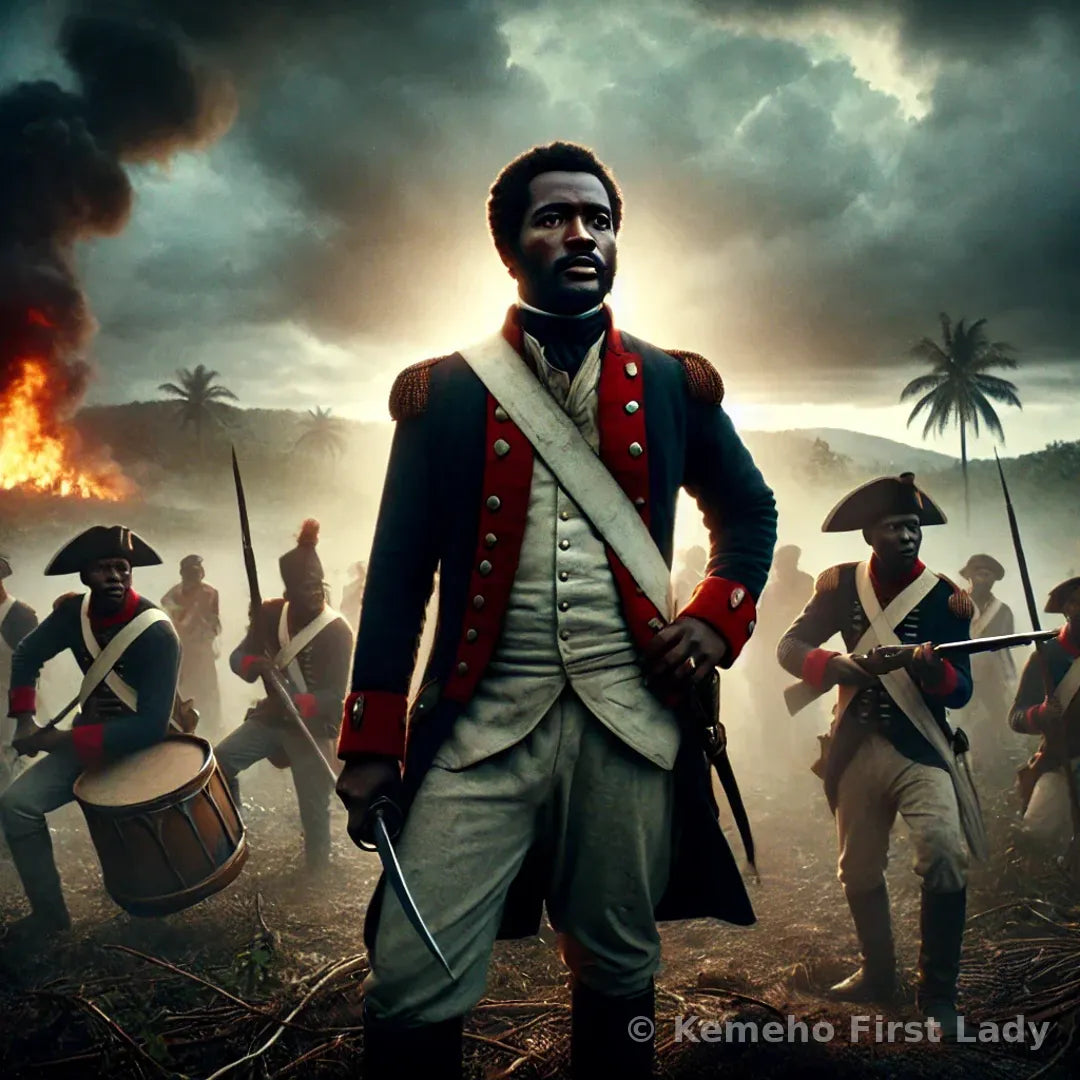
Toussaint Louverture: The Strategist of Freedom
Share Label
1791, a night of fire and blood.
The sky over Haiti was ablaze. In the distance, sugar plantations burned, and the screams of colonists echoed through the night. Toussaint Louverture stood atop a hill, his gaze fixed on the horizon. He knew that this night would mark a turning point. He was no longer just a freed slave. He had become the strategist of a revolution.

For months, anger had been brewing among the slaves of Saint-Domingue. The French Revolution had promised equality, yet here, on this land of suffering, injustice still reigned. So Toussaint took up arms. He knew the mountains, the forests, the hidden trails. He understood that freedom was not given—it had to be seized through struggle.
Under his command, hundreds of rebels organized. They struck quickly, vanished into the jungle, and reappeared elsewhere. The French colonists, followed by the Spanish and the British, all tried to crush them. But Toussaint was elusive. He understood warfare better than anyone. He studied strategy as others read books, anticipating his enemy’s every move.
The French troops, led by seasoned generals, underestimated this former slave. But in the Haitian mountains, their rigid military discipline crumbled against Toussaint’s lightning-fast ambushes. He did not just fight with weapons—he fought with intelligence, deception, and an unshakable faith in his people.
In 1794, France abolished slavery. Many believed the war was over. Not Toussaint. He knew the colonists still dreamed of reclaiming power. So he continued the fight. He liberated the entire island, expelled the Spanish and British, and then prepared for the ultimate test—facing Napoleon himself.
1802, the great battle.
Napoleon sent a massive army under General Leclerc to crush Toussaint and retake Saint-Domingue. The French expected a swift victory. They were wrong.

The mountains and forests became the playground of the Haitian revolutionaries. Toussaint and his men struck hard and vanished before the enemy could react. They burned plantations to deprive the French of resources, poisoned wells, launched night raids, and exhausted the invaders through guerrilla warfare. For months, Leclerc’s army suffered—not only from battle but also from tropical diseases that ravaged their ranks.
Eventually, weakened and desperate, the French were forced to negotiate a truce. Toussaint, ever the strategist, accepted, but with caution.
Betrayal was his downfall. Invited to negotiate, he was ambushed, captured, and sent to France, where he was imprisoned in a freezing cell in the Jura mountains.

But before his death, he spoke words that still resonate today:
“In overthrowing me, they have only felled the trunk of the tree of liberty in Saint-Domingue. But its roots are deep and numerous; it will sprout again.”
And he was right. Two years later, in 1804, Haiti became the first independent Black republic in the world. Toussaint Louverture was not there to see his dream realized, but his spirit lived on in every field, every river, every free face under the Haitian sun.










